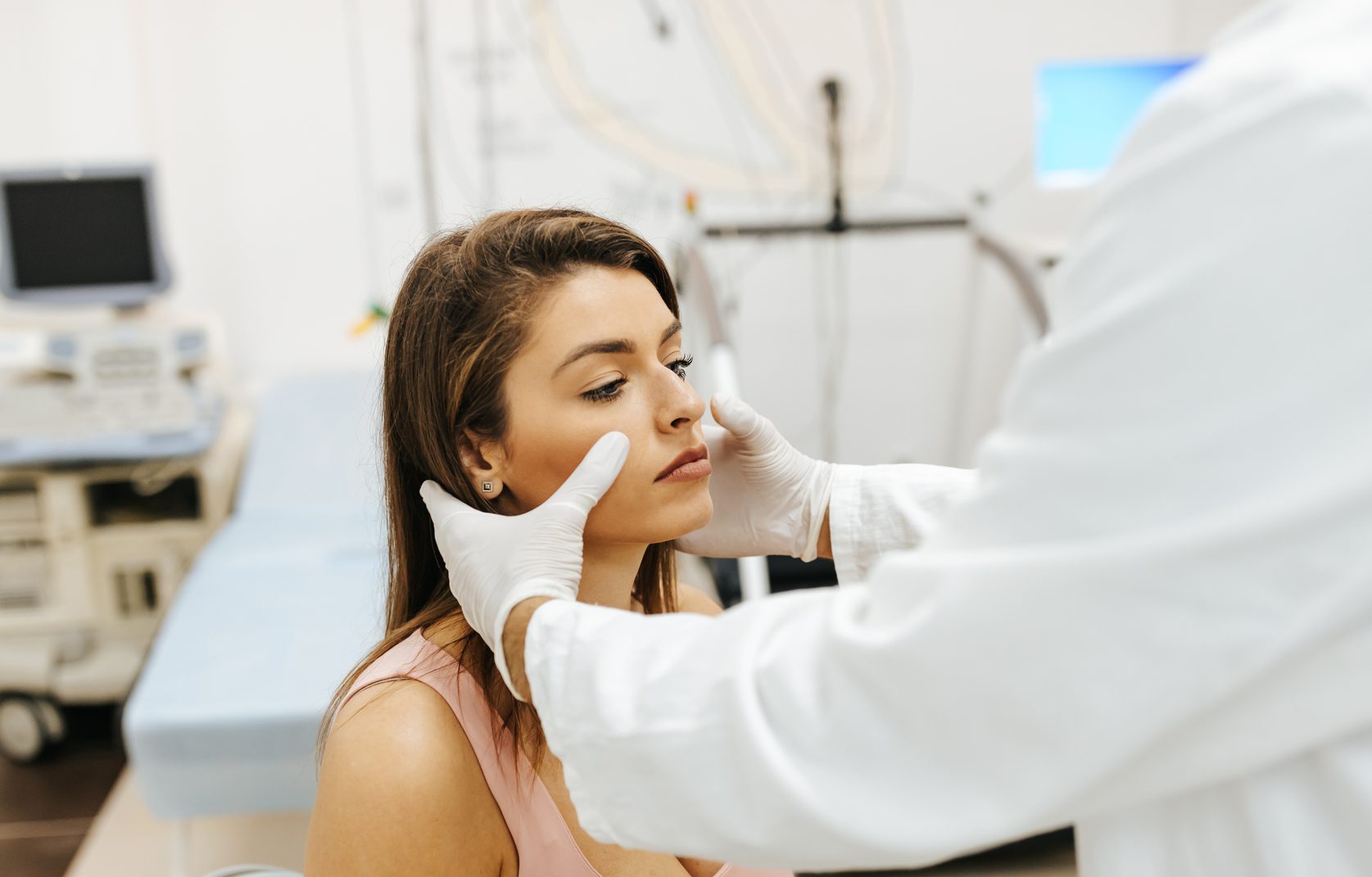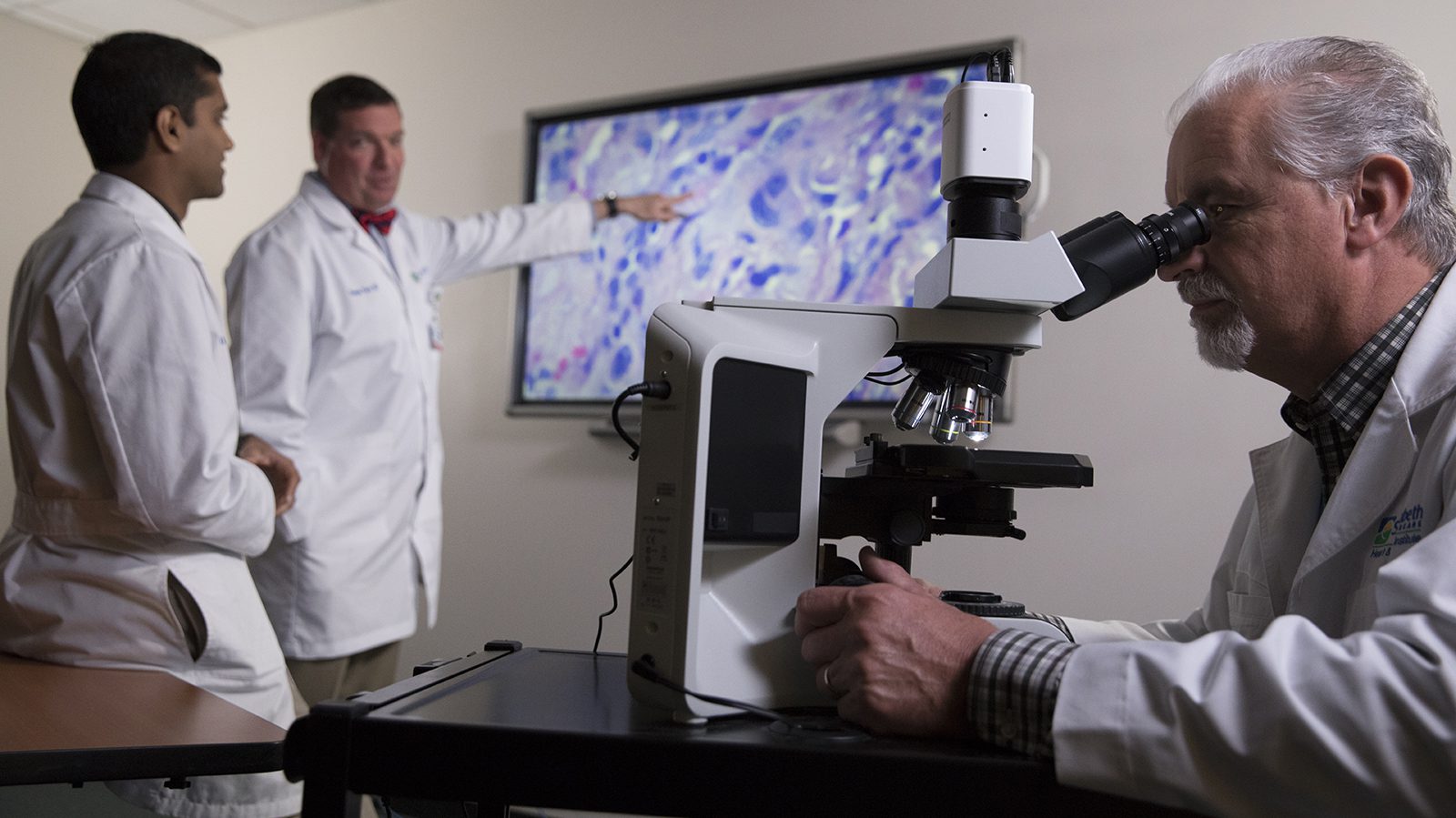Nasal and Sinus Cancer
Nasal and sinus cancer are rare forms of cancer that affect your nasal cavity and nearby sinuses. The experts at St. Elizabeth Healthcare will help you find the right treatment for your best outcome.
Your nasal cavity is an air-filled space located above and behind your nose. The nasal cavity contains two openings called nostrils. It is lined with cells that warm the air you breathe and make mucus, preventing your nose from drying. Paranasal sinuses are hollow spaces in the bones around your nose.
Causes and Risk Factors of Nasal and Sinus Cancer
It is unclear what causes nasal and sinus cancer. It occurs when healthy cells mutate (change), develop abnormal properties and multiply quickly.
Understanding the risk factors helps you know when to talk to your provider about potential concerns. Certain factors may increase your risk for nasal and sinus cancer:
- Being a male older than 40.
- Epstein Bar Virus (EBV)
- Human papillomavirus (HPV) infection.
- Tobacco Use.

Make an appointment
For more information, please contact your oncologist or call (859) 301-4000.
Symptoms of Nasal and Sinus Cancer
Doctors diagnose most cases of nasal and sinus cancer after it causes symptoms. Nasal and sinus cancer may not cause symptoms in its earliest stages.
As the disease progresses, common symptoms may include:
- A lump or swelling in your face or nose.
- Blocked or clogged sinuses.
- Continual congestion and stuffiness in your nose.
- Difficulty breathing through your nose.
- Mucous running in your throat or nose.
- Ear pain or pressure.
- Facial pain or swelling.
- Headache or pain in the sinus area.
- Loss of hearing.
- Loss of the sense of smell.
- Numbness or tingling in your face.
- Persistent nosebleeds.
- Watery or bulging eyes.
Many other conditions can cause these symptoms, such as a cold or sinus infection. If you notice any of these symptoms that don’t resolve, tell your primary care provider.
Diagnosing Nasal and Sinus Cancer
Our approach to diagnosing nasal and sinus cancer is thorough and focuses on your situation. We start with a physical exam and a comprehensive review of your health history. We also use a range of diagnostic tests to accurately identify your condition.
Testing may include:
Treating Nasal and Sinus Cancer
We’re committed to creating a treatment plan designed for your specific needs. Your care will aim for the best outcomes while prioritizing your overall well being.
Treatment options for nasal and sinus cancer vary depending on the stage of your cancer and whether it has spread to other parts of your body.
You’ll have access to a wide range of treatments that include:
Your Cancer Care Team
You’re not alone during your cancer care journey. In fact, you have an entire team of dedicated specialists at St. Elizabeth Healthcare. Together, they create your treatment plan and support your well being.
Your cancer care team includes:
- Medical oncologists (cancer care physicians) specializing in immunotherapy and precision medicine.
- Surgical oncologists and thoracic surgeons.
- Radiation oncologists.
- Interventional radiologists.
- Pain management specialists.
- Genetic counselors.
- Pathologists.
- Nutritionists.
- Pharmacists.
- Nurses.
- Support staff.


